Car Buying Checklist: Your Ultimate Guide for 2024
Buying a car is a significant investment, whether it’s your first vehicle or you’re upgrading to something new. With so many options and factors to consider, the process can feel overwhelming. However, with a well-thought-out plan and a proper checklist, you can confidently navigate the car buying journey. In this blog, we'll guide you through the essential car buying checklist and highlight what to watch out for along the way.
1. Define Your Budget
Before you even start searching for cars, determine how much you can realistically afford. Factor in not just the purchase price but also ongoing expenses like insurance, fuel, maintenance, and road tax. Stick to your budget to avoid unnecessary financial strain.

2. New vs. Used Cars
Both new and used cars have their pros and cons. New cars come with a warranty and the latest features, but they also depreciate faster. Used cars are cheaper but may come with higher maintenance costs and a shorter warranty. Decide which option fits your needs and budget.
3. Research and Compare Models
Take your time to research different car models that fit your needs. Use comparison websites and read reviews from both experts and owners. Consider factors like fuel efficiency, reliability, safety ratings, and resale value. Keep in mind what you need the car for—commuting, family trips, or even outdoor adventures.

4. Car Buying Checklist
Here's a comprehensive checklist to guide you through the process:
- Budget Set: Determine your maximum spend (including finance if needed).
- Vehicle Type: Do you need a small city car, a spacious family vehicle, or a fuel-efficient hybrid?
- Mileage: For used cars, check the mileage—low mileage typically means less wear and tear.
- Service History: Ensure the car has a full service history, showing it’s been regularly maintained.
- MOT and Tax: Check when the car’s MOT is due and whether the vehicle tax is affordable.
- Insurance Costs: Get quotes for the specific make and model you're interested in.
- Test Drive: Always test drive the car to ensure it’s comfortable and there are no obvious mechanical issues.
- Warranty: Look for a good warranty, whether it’s from a dealer or an extended third-party option.
- HPI Check: Run an HPI check to confirm the car hasn’t been in any major accidents or isn’t listed as stolen.
- Documentation: Make sure you receive all necessary documents—V5C logbook, MOT certificates, service records, and manuals.
- Dealership Reputation: If buying from a dealer, check reviews to ensure they are reputable.
5. Inspecting a Used Car
If you're buying a used car, inspection is critical. Here are a few things to look out for:
- Exterior: Look for signs of damage, mismatched paint, or rust. These could indicate previous accidents or neglect.
- Tyres: Check the condition and wear on the tyres. Uneven wear may signal alignment issues.
- Engine: Pop the bonnet and inspect the engine. It should look clean, with no signs of leaks or rust.
- Interior: Inspect the upholstery for tears, stains, or excessive wear. Also, test the air conditioning, electronics, and lights.
- Brakes and Suspension: Test these during your test drive. Listen for any unusual noises when braking or turning.
- Mileage vs. Condition: Low mileage doesn’t always mean the car is in great shape, but it’s worth considering how the mileage matches the car’s condition.
6. Car Finance Options
If you’re opting for car finance, take the time to explore the different types available:
- Hire Purchase (HP): Pay a deposit and the remaining amount in monthly instalments. You own the car once all payments are made.
- Personal Contract Purchase (PCP): Pay lower monthly payments but a larger lump sum at the end to own the car. You can also return the car or upgrade to a new one.
- Personal Loan: Borrow the amount from a bank or lender to pay for the car outright and repay the loan in instalments.
Compare different finance deals and make sure to read the fine print on interest rates and fees.

7. What to Watch Out For
There are several red flags to be aware of when buying a car:
- Price Too Good to Be True: If the deal seems unrealistically cheap, it may be a scam or the car may have hidden issues.
- Lack of Documentation: If the seller can't provide a full service history or V5C logbook, walk away.
- Rushing the Sale: Be wary of sellers who push you to make a quick decision. Take your time to inspect the car properly.
- Unusual Engine Noises: Any strange sounds when starting or driving the car should be thoroughly investigated before purchase.
- High Mileage with No Recent Service: A car with high mileage that hasn’t been recently serviced could cost more in the long run.
8. Final Thoughts
Buying a car is a big decision, but by following this car buying checklist and being aware of potential pitfalls, you can make a well-informed choice. Whether you’re purchasing from a dealership or a private seller, ensure all documentation is in order and never hesitate to ask questions.
Remember, buying a car isn’t just about the price tag—it’s about getting a reliable vehicle that suits your lifestyle. Happy car hunting!




